Toolkit
Feb 01 2024
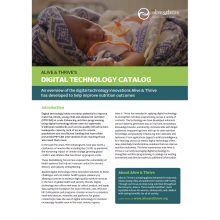
Alive & Thrive Digital Technology Catalog: An overview of the digital technology innovations Alive & Thrive has developed to help improve nutrition outcomes
Toolkit
Dec 03 2020
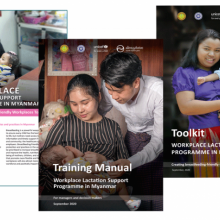
Workplace lactation support programme in Myanmar
Breastfeeding is a powerful weapon in the fight to ensure every child has the best possible start to life, but mothers need access to accurate information and timely support from their family and community; the healthcare system; and their employers.
Report
Apr 30 2019

Maternal, Infant, and Young Child Nutrition and Nutrition-sensitive Practices in Indonesia
This report provides a clear path and guidance for the government and other key stakeholders to develop a national advocacy and behavior change communication strategy for stunting reduction.
Poster/Graphic
Jun 02 2017
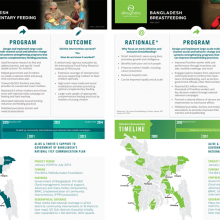
Breastfeeding and complementary feeding intervention summary and results
These two infographics summarize Alive & Thrive’s work in Bangladesh from 2009 to 2014. The rigorously evaluated intervention resulted in large scale improvements in exclusive breastfeeding and complementary feeding practices.
Poster/Graphic
May 31 2016
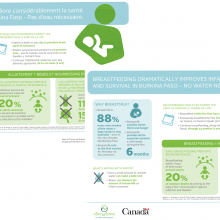
Breastfeeding dramatically improves infant health and survival in Burkina Faso - no water needed
Easy-to-use reference tool that highlights optimal breastfeeding practices in Burkina Faso, and is intended for use by decision-makers and stakeholders when advocating for optimal breastfeeding practices.
Report
Apr 30 2016
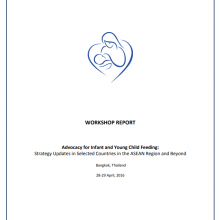
Advocacy for infant and young child feeding: Strategy updates in selected countries in the ASEAN region and beyond
Strategic and well-coordinated advocacy is essential to improve nutrition at scale. Recent efforts in countries throughout Southeast Asia have generated regional momentum and resulted in stronger nutrition policies and programs.

